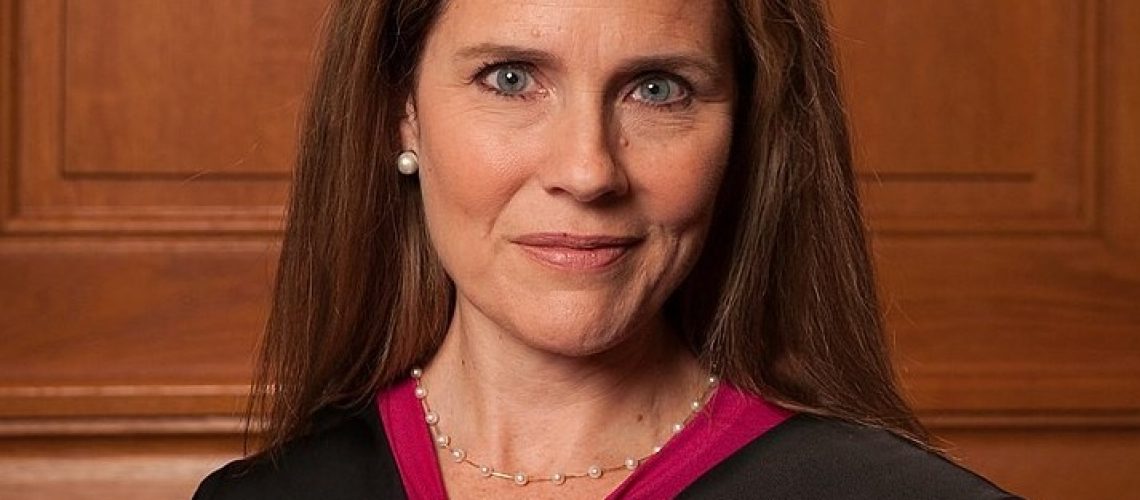Justice Barrett hasn’t published an opinion yet, but she’s just made her presence known.
When Justice Ginsburg was on the Court earlier this year, she joined a 5-4 majority that included Chief Justice Roberts and that refused the pleas of churches to stop, on an “emergency” basis, jurisdictions that were clamping down harder on in-person worship services than they were on other types of groupings. In a case from Nevada, the majority refused to stop state restrictions of worship services even though much larger groups were allowed to meet for hours on end at casinos. Justices Alito, Thomas, Gorsuch, and Kavanaugh all dissented.
But on Thanksgiving Eve, a new 5-4 split, with Justice Barrett in the majority, said that New York could not impose 10- or 25-person caps on worship centers when they were not imposed on places of business and other establishments (and even though some establishments could not have gatherings at all). The majority explained in a “per curiam” (unattributed) opinion that the First Amendment’s protection of the free exercise of religion outlaws discriminatory treatment of churches, synagogues, and mosques that are otherwise following required safety measures. And Chief Justice Roberts, while dissenting on the ground that he didn’t think a stay was needed any longer because New York had (for now) lifted the caps from the churches and synagogues who had sued, also indicated that making things tougher on worship services than on non-religious gatherings sure didn’t seem kosher, constitutionally speaking.
Are all things put right now? They are a lot better than they were, because lower courts will follow this latest decision for guidance in existing and future cases and state and local authorities will likely take this decision into account when crafting their emergency restrictions. But this decision on an “emergency” request to stop the discrimination is not the final word. For a decision to be a binding precedent in other cases, it must be a decision after non-emergency briefing of the issues. The Court’s decision on the NY stay petition is a strong indicator that they are ready to decide such a case when it is presented to them, and there is such a case in the pipeline now that challenges a similar, 10-person cap on worship services imposed in Illinois. Briefing is still in process on the request to hear the case, and The National Legal Foundation, along with several other religious and religious advocacy organizations, will shortly file a brief encouraging the Supreme Court to take and decide the case. The NY decision signals that they will take the case and that a majority, including Justice Barrett, will get it right.

